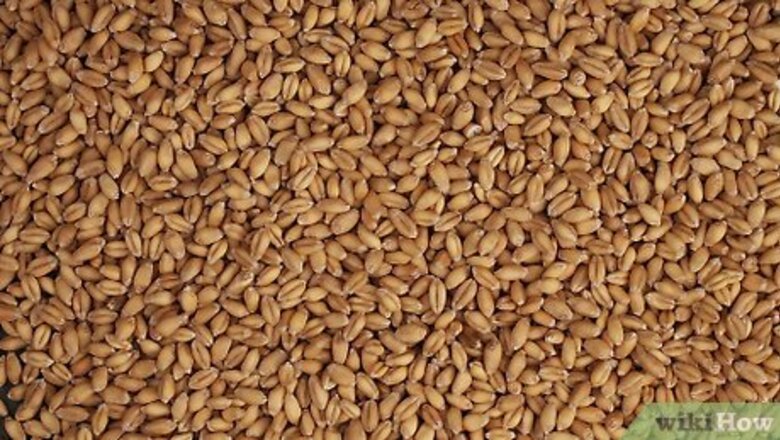
views
Preparing the Farro
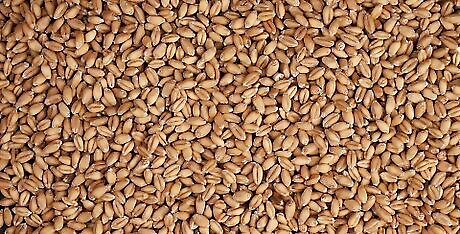
Choose the type of farro. This grain can be purchased in whole, semi-pearled, and pearled forms. Whole-grain farro is the healthiest and contains the most fiber, but it takes longer to cook (about 3 hours) than semi-pearled or pearled farro. It can be rougher on sensitive digestive systems and has an earthier, nuttier flavor than the more processed versions. Semi-pearled farro cooks in about half the time as whole-grain farro because the bran has been scored, allowing heat to reach the center more quickly. It has less nutrition than whole-grain farro, however. Pearled farro has had its bran completely removed. It is the quickest yet least nutritious form to consume.
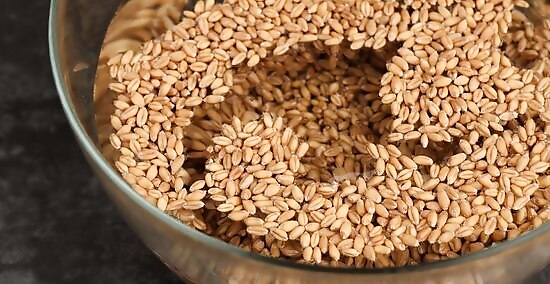
Soak the farro, if desired. Soaking is not necessary for semi-pearled and pearled farro, but it can greatly reduce the overall cooking time for whole farro. Place the farro in a bowl and cover it with cool water for 8 to 16 hours in the refrigerator.
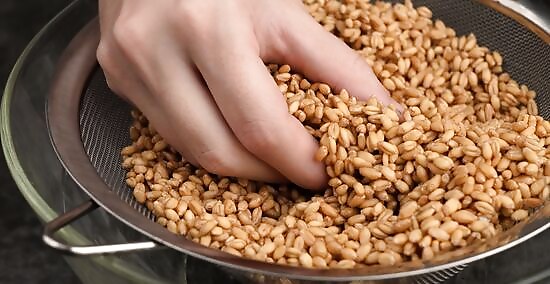
Rinse the farro. Place the farro in a fine-gap mesh colander and rinse with cool, running water until the water runs clear. This step should be performed regardless of whether or not you soaked the farro.
Boiling the Farro
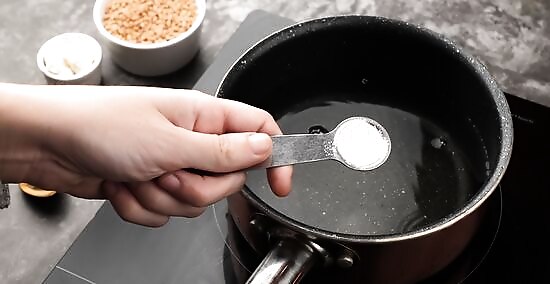
Boil water and salt in a medium saucepan. Combine the water and salt in the saucepan and heat over medium-high until the water reaches a rolling boil.
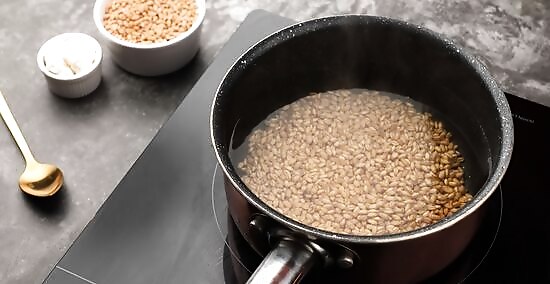
Stir in the farro. Make sure that the farro is completely submerged in the water and reduce heat to low or medium-low. The water should slow to a gentle simmer. You can also add the farro and water at the same time. Simply allow the water to reach a boil with the farro in it and reduce the heat after a rolling boil is reached, stirring the farro to prevent it from sticking to the side or bottom of the saucepan.
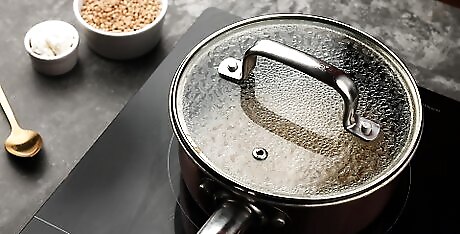
Cover and cook until chewy, tender, or mushy. Exact cooking time can vary from 15 to 40 minutes, depending on the type of farro you use and the texture you prefer. If you are cooking whole farro and it has not been soaked beforehand, allow for up to 3 hours of boiling to make it digestible. For a chewy texture, allow dry whole farro to cook for 30 minutes. Allow pre-soaked whole farro to cook for 15 minutes and semi-pearled or pearled farro to cook for 20 minutes. For a tender texture, allow dry whole farro to cook for 40 minutes. Allow pre-soaked whole farro to cook for roughly 25 to 30 minutes and semi-pearled or pearled farro to cook for roughly 30 minutes. For a mushy texture, allow dry whole farro to cook for 60 minutes. Allow pre-soaked whole farro to cook for roughly 40 minutes. Semi-pearled and pearled farro should go for 35 to 45 minutes. Check the texture every 5 to 10 minutes after the first 20 minutes.
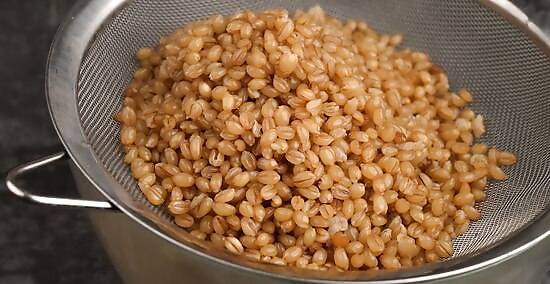
Drain excess water. The farro will absorb most of the water, but there may be extra water sitting in the bottom of the saucepan depending on how long you cooked the farro.
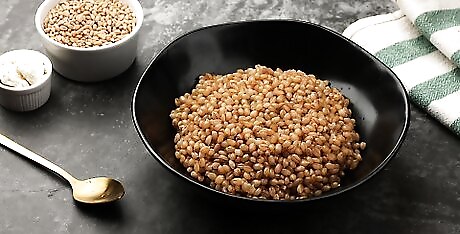
Serve warm. Allow the farro to cool for a few minutes before consumption.
Alternative Cooking Methods
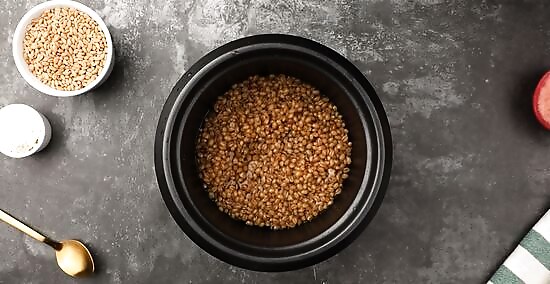
Cook the farro in a rice cooker. Add 1 cup (225 ml) farro and 3 cups (750 ml) water to the rice cooker and cook for roughly 45 minutes. Use soaked whole-grain farro. The farro should be soaked overnight for at least 8 hours. Set the time manually to 45 minutes. If your rice cooker has optimized settings for various types of grains or rice, use the "Brown Rice" setting.
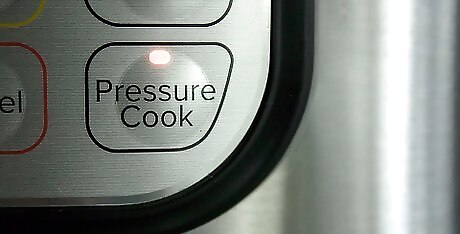
Prepare the farro in a pressure cooker. Use 1 cup (225 ml) farro and 3 cups (750 ml) water and cook for 10 to 15 minutes. You do not need to soak the farro for this method since it will cook in roughly the same amount of time either way. Cook the farro for two to three whistles.
Variations
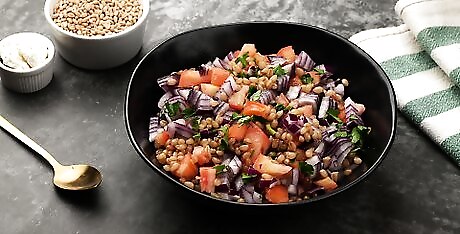
Serve farro in antipasto. Cook the farro and other ingredients separately before tossing them together and serving. Toss the cooked farro with 1/4 cup (60 ml) minced red onion, 1/4 cup (60 ml) diced tomatoes, 2 Tbsp (30 ml) extra virgin olive oil and wine vinegar to taste. Let stand for 30 minutes to 1 hour as the flavors lend. Fold in fresh parsley and fresh basil before serving. If desired, you could also add diced peppers, black olives, steamed greens, or cold poached seafood.
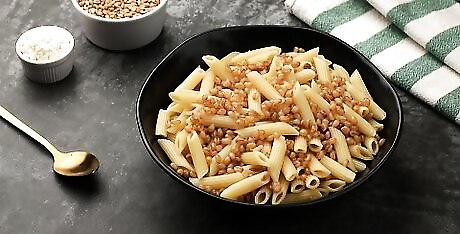
Prepare farro with pasta. Cook the two separately and toss together just before serving. Small pasta, like orzo, tends to work best, but any type of pasta can be used. You can serve the dish warm or cold. Tomato-based sauces complement the flavor especially well.
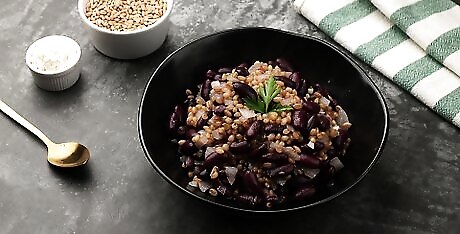
Add beans and cheese. There are a number of dishes you can prepare with farro, beans, and cheese. Make a type of risotto by sauteing diced onion, diced sweet peppers, minced garlic, and pinto beans. Add cooked farro and pour 2 cups (500 ml) of vegetable or chicken broth into the mixture, 1/2 cup (125 ml) at a time. Cook off each addition and served with Parmesan or Parmigiano-Reggiano cheese. Add 2 cups (500 ml) of drained, rinsed pinto beans to cooked farro or to farro antipasto. You can also add a small amount of Parmesan cheese or toasted walnuts to the mix.
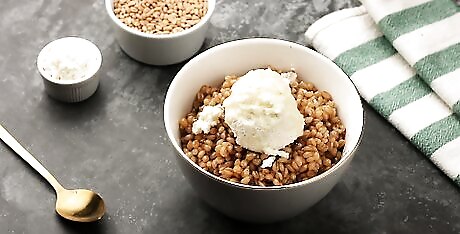
Sweeten the farro. Toss room-temperature cooked farro with ricotta cheese and honey to taste. If desired, sprinkle with cinnamon as a garnish.
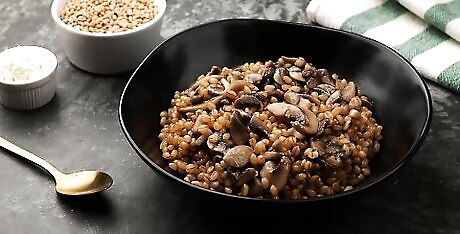
Toss with sauteed mushrooms. Portobello and wild mushrooms can be tossed with warm cooked farro. Pour a little olive oil into a skillet. Brown thick Portobello mushrooms or wild mushrooms with diced onion. Deglaze the pan with a splash of white wine. Toss with warm farro.



















Comments
0 comment